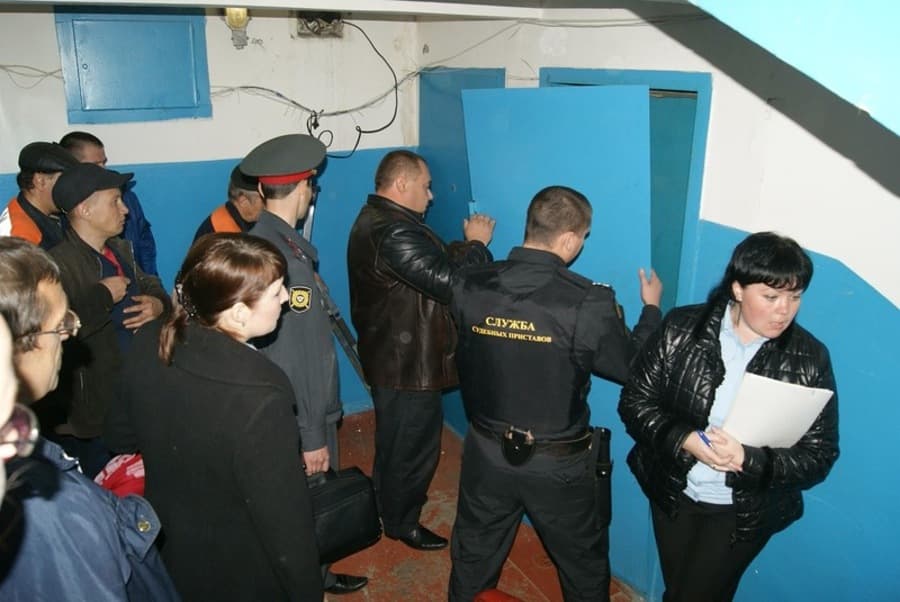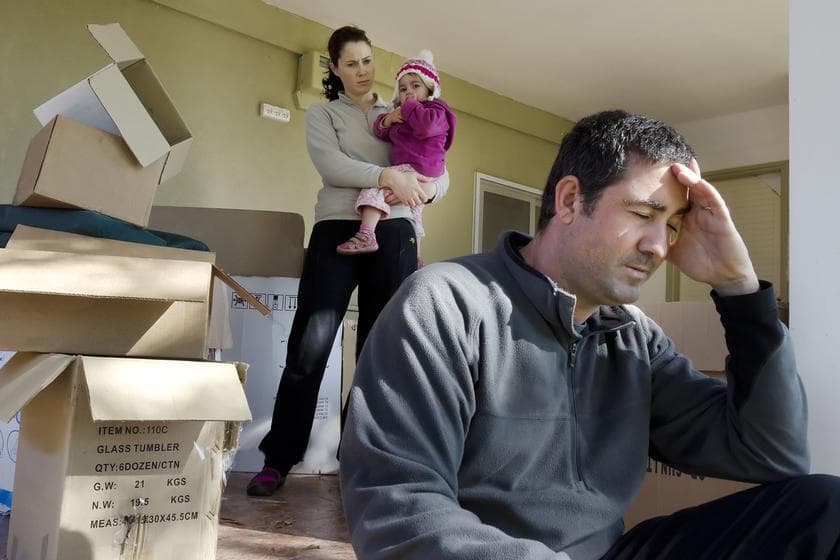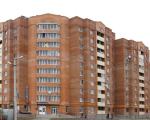Eviction from council apartment
The right of every person to housing and protection from unreasonable encroachments to leave a person without it are clearly spelled out in Art. 40 of the Constitution of the Russian Federation. Therefore, every dispute about eviction and the right to reside must be considered in court with the participation of a prosecutor.
The court, in turn, in pursuance of the Basic Law, is obliged to protect the right of the defendant to live until the full set of evidence is provided by the plaintiff. According to statistics, more than 80% of such cases end in failure. However, if the plaintiff is firmly convinced that he is right and has collected a powerful evidence base, you should not be afraid of bad statistics.
Eviction from public housing
The issuance of the right to settle and live in apartments and other residential area for family use, which is in the possession of the municipality, is carried out in accordance with social tenancy agreements.
An order for residential premises issued in the USSR is, with rare exceptions, the basis for concluding such an agreement, being considered its counterpart in absentia, which does not have direct legal force when drawing up other documents in the Russian Federation. The procedure for the issuance of housing, eviction and residence under a social contract of employment is regulated by articles 49-91 of the Housing Code of the Russian Federation.
According to Art. 84 of this code provides for 3 scenarios for eviction from a municipal apartment:
- Relocation to a more comfortable municipal building or at least equal, it is used when evicting due to force majeure circumstances - planning a house for demolition, withdrawal for reconstruction, the appearance in the apartment of a number of residents that is more than allowed for its area, and so on.
- Eviction to less comfortable municipal premises- applies to persistent non-payers of utility bills, the plaintiff in such cases is the municipality.
- Final eviction without the right to receive housing under a social tenancy agreement- the most difficult option, involving complex litigation, the plaintiffs are usually the cohabitants and neighbors of the defendant, often together with the municipality.
Timely payment of utilities - a guarantee of a quiet life
The main danger for residents of non-privatized apartments is the debt on utility bills.
- Firstly, in the presence of debt over 6 months municipal authorities have the right to file a lawsuit and evict an irresponsible tenant to a hostel. Only the lack of free space and the unwillingness to contact the court once again can keep them from such a step.
- Secondly, if there is lawsuit from neighbors or cohabitants and additional aggravating factors, the very fact of unwillingness to pay utilities for services may be decisive for the complete eviction of the defendant.
Why can they be evicted directly to the street?
The most difficult thing in judicial practice is the decision to evict a person who does not have alternative housing and prospects for receiving it under a social contract of employment, literally on the street.
The circumstances in which a judge may take such an extreme measure are stipulated in Article 91 of the RF LC:
- Deprivation of parental rights, and recognition of the danger of children living with their former parents.
- The use of living space for other than its intended purpose, the transformation of premises into non-residential.
- Destruction of the provided premises and its internal structures, damage to common house property, combined with unwillingness to pay or make repairs within the time period set by the court.
- Regular violation of the rights and legitimate interests of neighbors, confirmed by police protocols and testimonies of witnesses.
10 reasons to move out of an apartment
- Proven fact of illegal entry.
- End of the lease agreement.
- Obtaining a more comfortable living space under a social tenancy agreement.
- Recognition of the emergency condition of the house, the need to demolish the building or withdraw it for the needs of the municipal fund. Residents are being relocated to equivalent premises.
- Debts on utility bills in municipal housing for a period of more than 6 months - the court issues a deadline for repayment, if court orders are not complied with, the debtor is evicted to a less comfortable dwelling.
- Absence of the respondent at the place of registration for more than 6 months, accompanied by non-payment of utility bills. Deregistration in this case is carried out without replacement of the dwelling.
- Using the apartment inappropriately, turning living space into non-residential, commercial, warehouse, and so on.
- Destruction of residential premises, common property. The eviction is carried out after the defendant refuses to restore the property.
- Systematic violation of the law in relation to neighbors, recorded by law enforcement agencies.
- Gross violation of sanitary and hygienic standards.

Eviction from social housing stock
The Social Use Housing Fund was created as a last chance for the poor and those evicted from more comfortable apartments to exercise their constitutional right to housing. Expulsion for misdemeanors from residential premises of social use actually gives a person the status of a person without a fixed place of residence.
Grounds for eviction can be:
- termination of the term of employment without the possibility of re-conclusion of the contract, due to Art. 91.9 paragraph 2 of the LC RF;
- arrears in payment for 3 months or late / incomplete payment for 6 months during the year;
- transfer of housing to unauthorized persons for the purpose of obtaining benefits, including on a rental basis;
- the tenant or family members living with him/her have a second home of any form of ownership that has sufficient area per 1 person to live in accordance with state standards;
- damage to state or public housing property with a refusal to compensate for the damage;
- violation of civil order in the building of the social use fund;
- misuse of living space.
Eviction of one of the employers or family members
Responsibility for actions that serve as the basis for eviction from public housing, the law assigns equally to all adult family members of the offender. Therefore, there is no effective mechanism for expelling one of the tenants without evicting other members of his family.
In addition, former family members are tenants under a social contract of employment, and receive the right not only to remain in the apartment in the future, but also to register members of the new family there.
One tenant can be evicted from a shared municipal apartment only in the following cases:
- The tenant is neither a tenant nor a family member - the eviction takes place on a general basis at the request of all tenants, the court has the right to grant a delay of up to a year for execution.
- The tenant is deprived of parental rights and recognized by the court as dangerous for his minor children - one of the grounds for the complete deprivation of housing rights under Art. 91 LCD RF.
Owner's eviction from a private residence
A privatized apartment is private property and evicting its sole owner is one of the most difficult tasks for any lawyer. Legal loopholes appear only as the number of equity holders increases and the share of the evicted person decreases, especially if other equity holders are not members of his family.
However, there are several mechanisms by which one can try, if not to deprive the owner of housing, then at least force him to move.
The main problem in solving this problem is to find a local government official who will deal with the claim, and to organize a large number of unanimous witnesses from among the neighbors. Therefore, there are practically no such cases in judicial practice.
Grounds for eviction of the owner from the apartment
- Transfer of ownership. The previous owner must move out within 30 days.
- The debt on the mortgage payment for the purchase of this dwelling, the apartment is transferred to the bank without the right to replace the dwelling and compensate for the money.
- Recognition of the house as emergency or subject to demolition, as well as the removal of the house by the authorities according to the plan for the reconstruction of the city. Equivalent housing is provided.
- Litigation for unpaid debt. The only dwelling in this case is not alienated. The remaining funds after the return of the debt are transferred to the evicted.
- The share of the area owned by the owner is less than the minimum allowable per person in accordance with the Housing Code of the Russian Federation. The alienation takes place at the suit of other owners, the court obliges them to pay the evicted person the full cost of the area that belonged to him. It is possible, only if this is not the only housing of the evicted person.
- Destruction (Article 293 of the Civil Code of the Russian Federation) or illegal restructuring (Article 29 of the Civil Code of the Russian Federation) of an apartment. The court will oblige the owner to restore everything to its original state within a certain period of time, in case of refusal - the forced sale of the apartment “under the hammer” and the return of money to the former owner, minus restoration costs and legal costs.
- Illegal use of living space for other purposes. The scenario is similar to the previous one. The law makes an exception for premises on the first residential floor (Article 22 of the Housing Code of the Russian Federation).
- Systematic violation of order, ignoring the legitimate rights and interests of neighbors. The most difficult and unlikely option. After repeated warnings and calls from the police, it is possible to obtain a court order to sell the defendant's apartment with the return of funds to him, minus legal costs. In the entire history of the judicial practice of the Russian Federation, only a few cases of successful eviction are known, each of which was accompanied by dozens of protocols and complaints.
Debts on utility bills for a certain period of time are not grounds for losing a privatized apartment, however, a large amount may force the utility company to file a lawsuit to recover the debt. This is the most likely scenario for loss of housing rights.
Can a family member of a homeowner be evicted?
The family members of the owner of the housing legislation are the spouse, children, parents, as well as other relatives or incapacitated wards, cohabitants (only if there are joint children), registered by the owner as family members.
The possibility of their eviction arises in the following cases:
- Family members who own a share of living space may be expelled only on grounds for evicting the owner together with the whole family;
- The transfer by the owner of the right to own an apartment to a third party allows evicting members of his family within 30 days, with some exceptions;
- The sole proprietor has the right to evict persons who have legally ceased to be members of his family, with certain exceptions.
A family member cannot be evicted in the following cases:
- The owner does not have the right to evict members of his own family through the court without terminating family relations;
- A family member who gave consent to privatization at the time of its implementation is equated in the right to live in a privatized apartment to the owner, and cannot be evicted even if the owner sells property rights, since 2014 it has become possible to expel such tenants for a long absence and refusal to pay utility bills;
- Underage children who have lost their parents, who do not have other housing or family members with other housing, cannot be evicted under any circumstances. This problem is solved by contacting the guardianship authorities, which can provide new housing.
It should also be taken into account that in case of legal eviction of a person who does not have another place of residence, the court usually gives a delay of 3 months to a year. In the event of expulsion by the owner of a former family member, the court may oblige the plaintiff to provide housing for the evicted person.

Evicting a Minor Child from Public Housing
Observance and protection of the rights of minor children is the main priority of the state, therefore it is practically impossible to legally evict a child from a state apartment without providing him with equivalent housing. The only way for such a solution is to move to a new place of residence of both parents, who are married, or a legal guardian.
When one of the divorced parents moves with the child, the guardianship authorities will issue permission to deregister in the old apartment only in two cases:
- written consent from both parents and equivalent housing conditions at the new place of residence;
- application of a child over 14 years of age, about the desire to change the place of registration.
A minor child has more legal rights to public housing than his parents. When parents are evicted under Article 91 of the Housing Code of the Russian Federation, with deprivation of parental rights and without the right to provide social housing, children are usually left the right to an apartment and state guardianship is established over them.
Only one attempt is given for eviction through court proceedings, because according to the civil procedure code, the court dismisses the claim, on which a decision has already been made. When planning to evict an objectionable tenant through the court, it is necessary to take into account all the details, conduct lengthy preparations and involve a professional lawyer.
Dmitry Balandin




